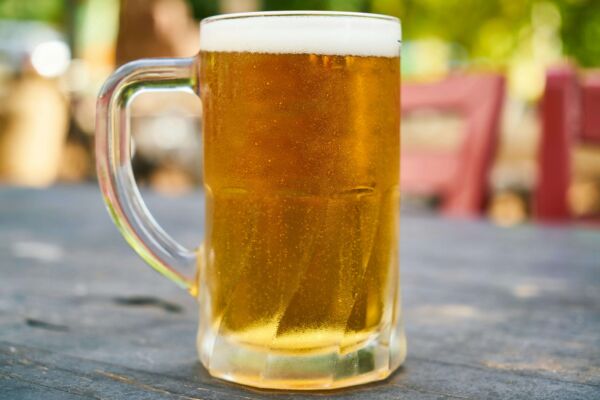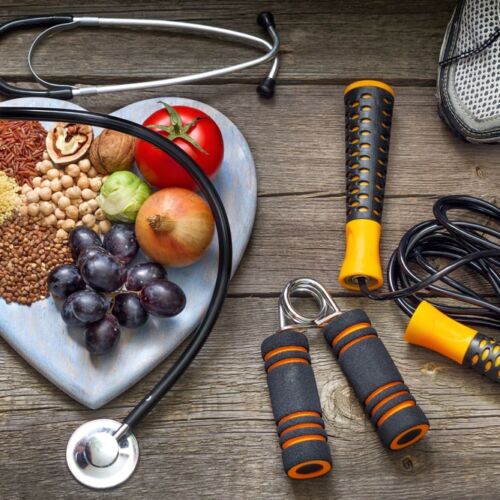Alcohol and Athletic Performance: What You Should Know
by Carrie Mullin Innes

If you want to improve your athletic performance, you’ve likely changed your training and diet. But have you made changes to your alcohol intake?
Alcohol is often used to celebrate or relax. Factors such as genetics, gender, amount of alcohol consumed, and body weight all affect how alcohol is metabolized by the body.
When it comes to alcohol and athletic performance, alcohol use can affect it in many ways. In the short term, alcohol use can impair motor skills, influence hydration status, and impact aerobic performance and recovery. In the long term, alcohol use can lead to unfavourable changes in body composition, nutrient deficiencies, and changes in immune function.
Read on to learn more about alcohol and athletic performance, recovery, and body composition, as well as some tips for minimizing the effects of alcohol on athletic performance.
Alcohol and Athletic Performance
When it comes to alcohol and athletic performance, studies show that alcohol is detrimental to endurance performance. This appears to be related to the amount of alcohol consumed, with higher levels of alcohol consumption leading to larger deficits in performance.
Another study looking at the endurance performance of 13 well-trained male cyclists found that an acute, small amount of alcohol consumed before exercise was associated with a significant decrease in the average cycling power output. They also found that alcohol consumption was associated with higher heart rates and ratings of perceived exertion (RPE).
One way that alcohol might affect endurance is that when alcohol is consumed, the body prioritizes the metabolism of alcohol over the metabolism of carbohydrates and fats. Since carbohydrates and fats are the preferred source of energy during endurance exercise, shifting metabolism away from these fuel sources could have a negative impact on energy stores and subsequent performance.
Alcohol and Athletic Recovery
Another link between alcohol and athletic performance is the effect that alcohol can have on recovery. Proper recovery from exercise includes replenishing glycogen stores, stimulating muscle growth and restoring fluid balance. Alcohol can interfere with many of these processes.
One study done with 6 adult males looked at the effect of alcoholic beverages consumed 30 minutes after exercise performed in the heat. They found that drinks containing 4% alcohol were associated with greater urine output, ultimately delaying the rehydration and recovery process. This is because alcohol increases urine output and acts as a diuretic. This can increase your risk of dehydration and reduce performance if you are exercising again. Of note, the study also found that an alcohol-free or 2% alcohol drinks did not significantly impact hydration status.
Another aspect of athletic recovery is stimulating muscle growth. A study of 8 physically active males found that alcohol consumption after exercise (the equivalent of 12 standard drinks) reduced rates of muscle protein synthesis, even if enough protein was eaten alongside the alcohol. The authors concluded that alcohol consumption may impair recovery, adaptations to training and muscle growth.
Finally, replenishing glycogen (energy) stores is another essential component of athletic recovery. While it’s unclear whether alcohol consumption directly affects glycogen synthesis, a study in well-trained cyclists found that drinking after exercise may displace nutrients that are important for recovery and glycogen synthesis, such as carbohydrates and protein.
Overall, alcohol consumption immediately after a training session or competition is likely to delay proper recovery from exercise and interfere with subsequent exercise.
Alcohol and Body Composition
A final link between alcohol and athletic performance is the effect that alcohol has on body composition. A study of 983 young men in the military found that men who participated in binge drinking at least once a week had the most unfavourable body composition (higher percent body fat and body weight) and worse physical fitness (aerobic and muscular fitness) compared to the group that did not binge drink.
Another study of 3327 older, healthy men found that higher alcohol consumption (21 or more drinks per week) was associated with higher body weight, higher body fat and more fat distributed around the abdomen. This result was seen regardless of the type of drink and whether the alcohol was consumed with meals or not.
Overall, it appears that binge drinking or consuming large amounts of alcohol negatively affects body composition. If you are drinking, try to limit yourself to 0-2 standard drinks per week to avoid alcohol-related health consequences. This recommendation is based on the 2023 updates to Canada’s Guidance on Alcohol and Health.
Final Thoughts
There are many links between alcohol and athletic performance. If you’re focused on maximizing your recovery and stimulating muscle repair and growth after a workout, little to no alcohol is best. If you would like to enjoy a post-workout drink, here are a few tips for minimizing its effects on your performance:
- Opt for a light (reduced alcohol) drink that will be less likely to compromise your hydration.
- If you are going to consume alcohol, be sure to drink enough fluids during and after your workout.
- Don’t drink alcohol on an empty stomach. Try to have a meal with carbohydrates, protein and salt BEFORE your drink to help restore your electrolyte balance and replenish glycogen (energy) stores.
- If you are seeking muscle growth, limiting alcohol intake after exercise is best
- Don’t binge drink; try to stick to 1-2 drinks if you do choose to consume alcohol after a training session or competition.
If you’re interested in optimizing your recovery and performance, working with a sports dietitian can help. Click here to get in touch and book an appointment today!
Carrie Mullin Innes is a registered dietitian located in Calgary, Alberta. She provides nutrition counselling on digestive health, allergies & intolerances, eating disorders, heart health, PCOS, sports nutrition, and weight loss. Carrie can be found at https://scorenutrition.ca/ for more information.
Images: From Unsplash and Pexels
The Site is not intended to be a substitute for professional advice. Under no circumstances will we be liable for any loss or damage caused by your reliance on information obtained through the Site. You are responsible for evaluating the accuracy, completeness, or usefulness of any information, opinion, advice, or other content available through the Site. Please seek the advice of professionals, as appropriate, regarding the evaluation of any specific information, opinion, advice, or other content. Never disregard professional advice, including medical advice, or delay in seeking it because of something you have read on this Site.



